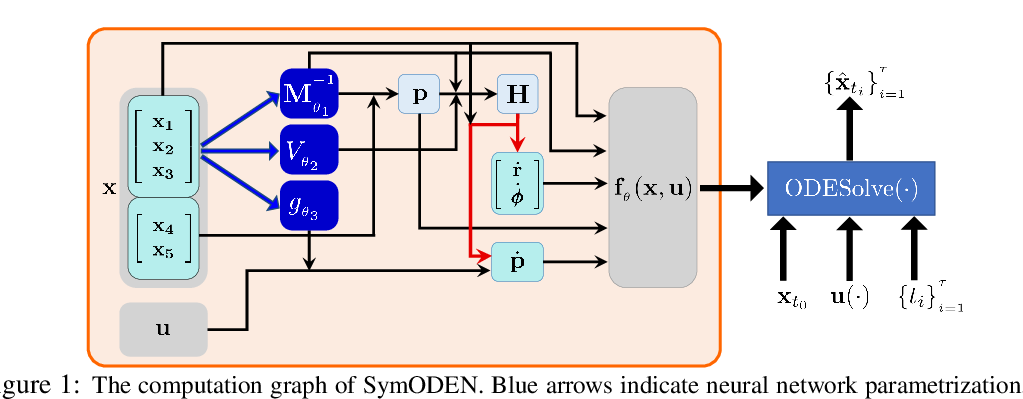Abstract:
We propose a model that is able to perform physical parameter estimation of systems from video, where the differential equations governing the scene dynamics are known, but labeled states or objects are not available. Existing physical scene understanding methods require either object state supervision, or do not integrate with differentiable physics to learn interpretable system parameters and states. We address this problem through a \textit{physics-as-inverse-graphics} approach that brings together vision-as-inverse-graphics and differentiable physics engines, where objects and explicit state and velocity representations are discovered by the model. This framework allows us to perform long term extrapolative video prediction, as well as vision-based model-predictive control. Our approach significantly outperforms related unsupervised methods in long-term future frame prediction of systems with interacting objects (such as ball-spring or 3-body gravitational systems), due to its ability to build dynamics into the model as an inductive bias. We further show the value of this tight vision-physics integration by demonstrating data-efficient learning of vision-actuated model-based control for a pendulum system. We also show that the controller's interpretability provides unique capabilities in goal-driven control and physical reasoning for zero-data adaptation.



